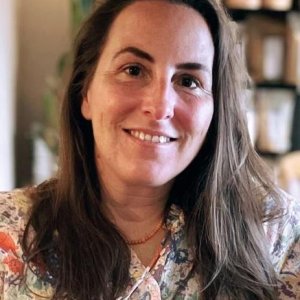I am a medical anthropologist working interdisciplinarily in maternal health and neglected tropical diseases, in particular questions of equity, social justice and quality of care. I specialise in the ethnography of health care facilities, fieldwork that links the micro level with macro level questions, and researching the interpretation and adaptation of global health policy across systems, realities and contexts.
I studied socio-cultural anthropology (BA, Wesleyan University) and Medical anthropology (MSc, University College London) before completing a PhD at LSHTM undertaking ethnographic research on the trajectories of medical volunteers and patients involved with a faith-based humanitarian organisation, looking at the interplay between identity, health and belief.
Affiliations
Centres
Teaching
I co-organise the Foundations in Reproductive Health module, one of the core modules for the MSC in Reproductive and Sexual Health Research. I also tutor on this MSc, and teach on various modules including the distance learning in medical anthropology course.
Research
As part of the Maternal and Newborn Health Group I research on a variety of projects. I am principal investigator on a mixed-methods project researching the dynamics of c-section use in the context of the global rise of c-section rates, currently focusing on a case study in Indonesia (funder: USAID). In the area of climate change and maternal health I am undertaking interdisciplinary collaborative research on the impact of extreme heat events on maternal health workers and their adaptations to climate change (Heat Indicators for Global Health: focus on maternal, child and workforce health (HIGH Horizons), (funder: EU Horizon Research and Innovation)).
I also lead a project advancing qualitative measurement of maternal morbidities and developing guidance on how to better research this subject (funder: WHO). Underlying much of my work is the study of historical and present maternal and neonatal health policies in West and North Africa looking at questions of health service use and delivery, access, and the underlying values that drive resource allocation.
